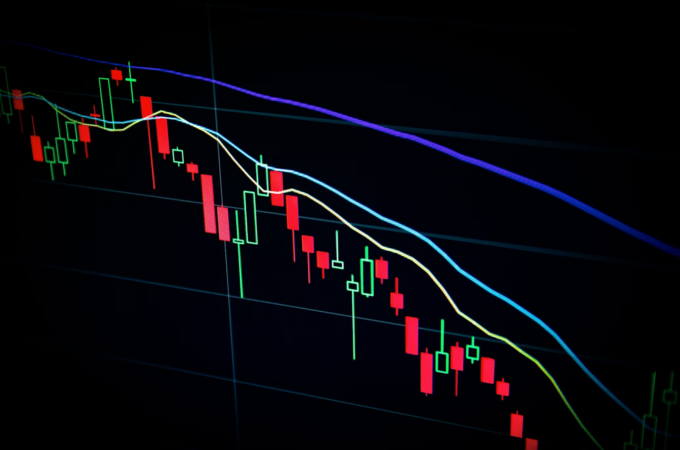
7 Points For Safe and Profitable International Trade
An increase in the ranks of international trade is one of the highest priorities of any business that wants to go global. For centuries, trade has commenced from both trading routes to trading blocs. Over the past few years, globalization and economic independence have led to international trade expansion. Some other factors, such as increased communication and economic liberalization, have contributed to global trade.
In a way, international trade has become an essential part of the global economic engine. It is a function of demand and supply in which one country has something that is of need to another. It enables countries to specialize in production where they have a competitive advantage to export these goods. Undoubtedly, import and export are two sides of the same coin without which international trade is impossible.
However, it requires strong focus and consideration to develop ways that can ease the process of international trade. Here we will list seven ways through which you can make international trade safe and profitable.
-
Consider the Best Way To Kick Start Your International Venture
The first step is to consider the type of business you want to run in your international venture. It means thinking about the type of goods to deliver internationally and ways to move them. In general, you have three ways to conduct your business. The first type is export management, in which a company collaborates with domestic sellers and works to seek foreign buyers. Their payment consists of salaries or commissions, and in some cases, they act as distributors for their products. These are specialized businesses based on their products, the foreign market, or the combination of both.
The second type is export trading, in which a company seeks domestic sellers by partnering with foreign buyers or customs brokerage. Their payment is the same as that of export management. The final type is import/export merchants that may not always specialize in any particular product or market. Perhaps, they buy products from a foreign seller or domestic manufacturer to ship and resell them. In doing so, they take responsibility for 100% risk and 100% profit chance. While the previous two types are more or less the same, import/export merchant works as a separate entity.

-
Ensure that the Products have Rights of Distribution
Another tip to minimize risks and make your trade profitable is to ensure that the other country allows the distribution of products you bring. Each country has its trade laws that your company must respect. Otherwise, you will waste quite a lot of time, effort, and resources in an impossible expansion. You can contact the customs services to understand all the trade routes of a country. It is best to familiarize yourself with the market culture and demographics to bring the right product. Otherwise, you will lose some great opportunities in a wasted effort.
-
Compare Shipping Services
It is best to compare shipping and freight forwarding services and conduct your research beforehand. Consider factors like shipping timescale, tracking process, dealings with delays, etc., to determine a suitable service. The tracking feature can be a significant game-changer as it streamlines the process and keeps overhead expenses down.
Additionally, a well-reputed shipping service with a proven track record minimizes reputational and financial loss and is a reliable partner. Do not consider cheap service as the best as they might take weeks in delivering your goods and cost you more than expected. Try to find the balance between costs and delivery time to approach the right trading partner.
-
Establish a Reputation By Specializing in a Niche
Whenever you consider international trading, it is a good idea to start from a niche. Some sectors have particular demand, which your business specialization can fill. Do not think that you have to bring something new, as it might not fulfill the new market’s expectation. Instead, study something popular that does not go out of style and put your spin to target the audience. Ensure that you can deliver in the niche you have selected, as it will establish your reputation.
Remember that your niche selection is a gateway to the new market. It is best to seek foreign sellers and buyers in your niche and approach them for a proposal. Be persistent and cast a vast network of contacts to find the best trading method within your niche. Once you establish your reputation, build your brand awareness and conduct your business, respectively. Feel free to expand once you have gathered enough credit and market share.

-
Master the Art of Dealing
Mastering the art of dealing and negotiation is the highlight of a successful international business. It is where you can set the tone of your business and drive a hard bargain. Undoubtedly, negotiation is an essential part of both local and international trade activity. At every point in your international trade, you have to negotiate, be it; setting the price, terms of sale, delivery time, minimum order, etc. Watch successful entrepreneurs and their way of dealing, so both parties agree on mutual terms. Securing a successful deal gives you more confidence in commencing another deal. However, parties rarely agree on contract terms the first time, so learning the art of persuasion is one of the most critical steps of a profitable international trade.
-
Understand Import Duties, Customs Charges, and Other Factors
During your international trade venture, it is vital to understand different trade factors. These include import duties, customs charges, subsidies and tax terms, fines, free-trade agreements, and licenses. Each of these factors holds a different value and needs thoughtful consideration before entering the new market. Take some time to understand these factors and include them in your trade activity for maximum profit. Many governments offer international trade incentives that you can benefit from only if you know that market properly.
-
Evaluate Risk of Protectionism
Trade protectionism is a policy that governments implement to safeguard local industries from foreign invasion. For example, a particular country imposes tariffs and quotas on foreign traders to ensure they do not drop the price and get domestic industries in trouble. Learn about such policies if you plan to trade internationally. Evaluate a realistic price, as it will determine your survival in the new market.
Final Word
International trade is a challenge that you have to face smartly by utilizing market knowledge and research. You can even consider the tips mentioned above as guidelines to ensure a safe and profitable trade with minimum risk involved.




